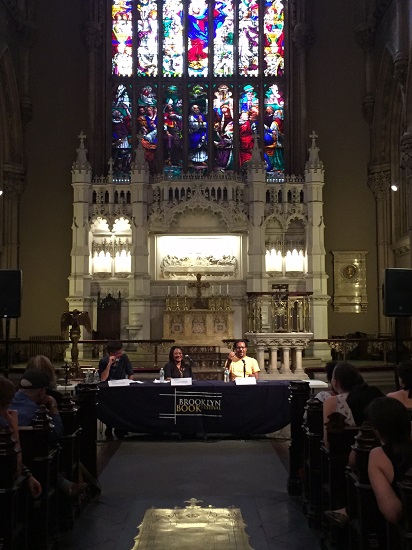Colson Whitehead, Lynn Nottage tackle race and power at Brooklyn Book Festival

Manhattan-native Colson Whitehead joined Brooklynite Lynn Nottage for a talk-de-force at the Brooklyn Book Festival on Sunday. The two Pulitzer Prize winners spoke about their careers with moderator Johnny Temple, publisher and editor-in-chief of Akashic Books, as well as what it means to be a New Yorker and American alike.
Festivalgoers packed into St. Ann and the Holy Trinity on Montague Street, the same church where Nottage’s great-grandparents were married in 1911, to hear the talk.
“When I come here, it really feels like I’m home,” Nottage said of the worship house.

Brooklyn Boro
View MoreNew York City’s most populous borough, Brooklyn, is home to nearly 2.6 million residents. If Brooklyn were an independent city it would be the fourth largest city in the United States. While Brooklyn has become the epitome of ‘cool and hip’ in recent years, for those that were born here, raised families here and improved communities over the years, Brooklyn has never been ‘uncool’.